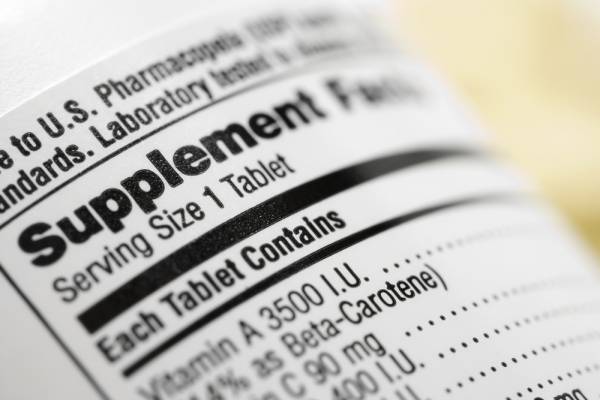The next time you hear about an elite or professional athlete testing positive for substance abuse don’t immediately assume they are guilty. Don’t get me wrong, l am adamantly against performance enhancing drugs, and while it’s difficult to assume someone’s innocence who tests positive for substances like steroids, HGH, or cocaine, there are other substances which athletes truly may not even know they are even ingesting.
Just call for substance abuse help right away. There’s no time to lose if someone becomes addicted to supplements.
Sound incredible? It’s not!
Until recently, like most people, I had no idea that navigating the multi-billion dollar dietary performance supplement market was like living in the Wild West. Believe it or not, the supplement market is governed by the rule of “manufactured, packaged, marketed, sold, consumed and innocent until proven guilty.”
While supplements are regulated by the Food and Drug Administration (FDA) as foods, they are regulated differently from other foods and from drugs. For example, a dietary supplement manufacturer does not have to prove a product’s safety and effectiveness before it is marketed. Also, unlike drug products, there are no provisions in the law for the FDA to “approve” dietary supplements for safety or effectiveness before they reach the consumer. Once a dietary supplement is marketed, the FDA has to prove the product is not safe in order to restrict its use or remove it from the market.
Surprised? Read on!
Companies that market dietary supplements are permitted to make structure/function claims about a given supplement in the marketing material. These are broad claims that the product can support the structure or function of the body. The FDA must be notified of these claims within 30 days of their first use and there is a requirement these claims be substantiated. One search through the web, however, shows there are so many products out there, that the claims are poorly regulated.
Dietary supplements are not required to be standardized in the United States; in fact, no legal or regulatory definition exists in the United States for standardization as it applies to dietary supplements. Standardization is a process manufacturers may use to ensure batch-to-batch consistency of their products. In some cases, standardization involves identifying specific chemicals (known as markers) that can be used to manufacture a consistent product. The standardization process can also provide a measure of quality control.
It is difficult to determine the quality of a dietary supplement product from its label. As with any product, the degree of quality control depends on the manufacturer, the supplier, and others in the production process.
Before You Purchase Supplements:
- If you are thinking about using a dietary supplement, first get information on it from reliable sources. Keep in mind dietary supplements may interact with medications or other dietary supplements and may contain ingredients not listed on the label.
- Do not assume anything with these products. The Internet is a great tool, investigate, investigate, investigate and do not take one resource as gospel – especially websites hosted by manufacturers or natural dietary manufacturer associations.
 Keep in mind that although many dietary supplements (and some prescription drugs) come from natural sources, “natural” does not always mean “safe.” Also, a manufacturer’s use of the term “standardized” (or “verified” or “certified”) does not necessarily guarantee product quality or consistency.
Keep in mind that although many dietary supplements (and some prescription drugs) come from natural sources, “natural” does not always mean “safe.” Also, a manufacturer’s use of the term “standardized” (or “verified” or “certified”) does not necessarily guarantee product quality or consistency.- Be aware an herbal supplement may contain dozens of compounds and its active ingredients may not be known. Researchers are studying many of these products in an effort to identify active ingredients and understand their effects in the body. Also, consider the possibility what’s on the label may not be what’s in the bottle. Analyses of dietary supplements sometimes find differences between labeled and actual ingredients.
- Tell your health care providers about any complementary and alternative practices you use, including dietary supplements. Give them a full picture of what you do to manage your health.
- The National Institute of Health – Office of Dietary Supplements has a series of vitamin and mineral fact sheets that provide scientifically-based overviews of a number of vitamins and minerals. They can provide a good basis for a discussion with your doctor about whether or not you should take a vitamin/mineral supplement. MedlinePlus is another good source of information.
- The FDA has a variety of articles and consumer advisories to help consumers inform themselves about dietary supplements, including warnings and safety information, labeling, evaluation information, and FDA’s role in regulating dietary supplements.
If you experience negative side effects from a supplement:
- If you suspect you may be having a side-effect from a dietary supplement, immediately stop taking the supplement.
- Tell your doctor or health care professional.
- Report your incident online through the MedWatch Reporting Program – Food and Drug Administration.
Please note, I am not saying all supplements are dangerous and manufacturers can’t be trusted. That is definitely not the case, as there are some great products on the market that work and provide a value to consumers. You do not have to be an active competitor, however, to realize you need to know what you are putting in your body and how it will react with other medications or other supplements.
My final words of caution are, “Be careful with the supplements you consume.” If something makes you feel like you are faster than a speeding bullet and able to leap buildings in a single bound it might not be what you think it is!






